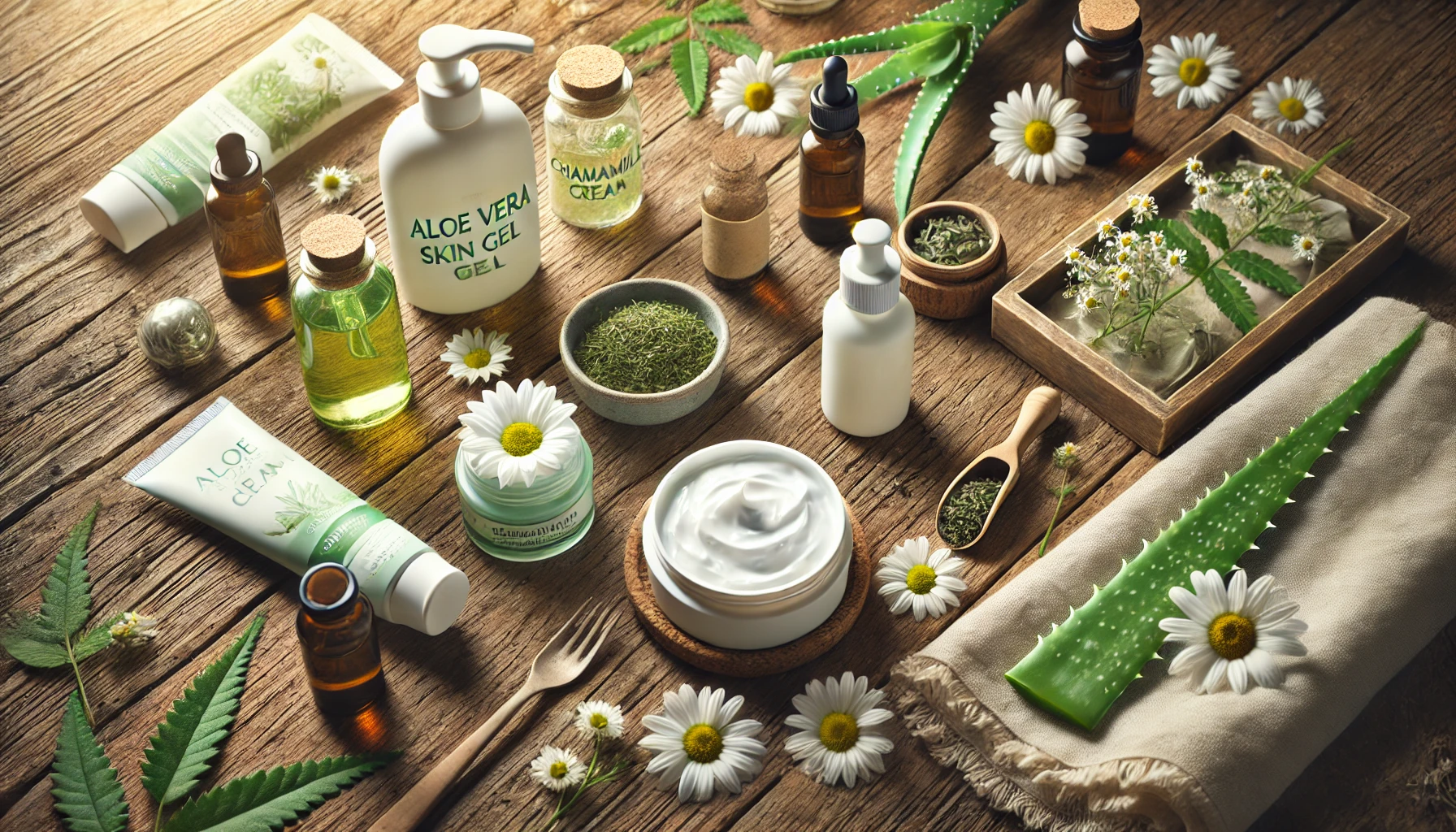“Discover the ultimate guide to Well Health Organic Skin Care—explore natural ingredients, DIY recipes, and expert tips for radiant, healthy skin.”
Organic skin care is no longer just a trend—it’s a lifestyle. In today’s fast‐paced world, more people are turning to natural, chemical‐free products to nurture their skin and overall health. “Well Health Organic Skin Care” embodies a holistic approach to beauty, blending ancient botanical wisdom with modern science to create products that are both effective and kind to your body and the environment.
In this guide, we will dive into every aspect of organic skin care—from the benefits and key ingredients to DIY recipes, expert opinions, and future trends. Whether you’re a seasoned natural beauty advocate or just starting your journey, this comprehensive guide is designed to inform, inspire, and empower you to make better choices for your skin and well-being.
Understanding Well Health Organic Skin Care
The philosophy behind Well Health Organic Skin Care is simple: nurture your skin with nature’s finest ingredients, free from harmful chemicals and synthetic additives. By embracing organic practices, these products are crafted to work harmoniously with your body, promoting a healthier complexion and a balanced mind.
What Does “Well Health” Mean?
“Well Health” is more than just a brand name; it signifies a commitment to wellness in every aspect of life. This concept integrates holistic practices, including nutrition, mindfulness, and self-care routines, with skin care solutions. When you choose Well Health Organic Skin Care, you’re not just treating your skin—you’re embracing a lifestyle that supports overall physical and mental health.
Why Choose Organic Skin Care?
Organic skin care products are made from ingredients grown without synthetic pesticides, chemical fertilizers, or genetically modified organisms (GMOs). Here’s why organic skin care is a smart choice:
- Purity: Organic ingredients are free from harmful toxins, ensuring your skin receives only what nature intended.
- Environmental Impact: Sustainable farming practices minimize environmental damage and reduce your carbon footprint.
- Sensitive Skin: Many conventional skin care products contain irritants that can cause allergies or exacerbate skin conditions. Organic alternatives are gentle and suitable for sensitive skin types.
- Nutrient Rich: Organic ingredients often contain higher levels of antioxidants, vitamins, and minerals that promote skin health.
By prioritizing organic skin care, you invest in both your health and the planet.
The Benefits of Organic Skin Care
Organic skin care provides numerous benefits that go beyond superficial beauty. Here, we explore some of the key advantages of making the switch to well health organic skin care products:
1. Enhanced Skin Health
Organic skin care products are formulated with natural ingredients that support the skin’s natural barrier. Ingredients such as aloe vera, chamomile, and green tea are known for their soothing and healing properties, which can help calm irritated or inflamed skin.
2. Reduced Exposure to Chemicals
Conventional skin care products often contain chemicals that can lead to long-term health issues, including hormone disruption and allergic reactions. By choosing organic options, you significantly reduce your exposure to these harmful substances.

3. Environmental Sustainability
Organic farming and manufacturing practices focus on sustainability. They reduce pollution, conserve water, and promote biodiversity. When you use organic skin care, you contribute to a healthier environment.
4. Ethical Sourcing
Many organic skin care brands are committed to ethical sourcing, ensuring that their ingredients are harvested in ways that respect local communities and biodiversity. This commitment adds a layer of social responsibility to your beauty routine.
5. Nutrient-Rich Formulas
Organic products typically contain higher concentrations of vitamins, antioxidants, and phytonutrients, which work synergistically to improve skin tone, elasticity, and overall appearance.
6. Long-Term Benefits
The cumulative effects of using natural, non-toxic products can lead to long-term improvements in skin health. Over time, many users notice a reduction in fine lines, improved hydration, and a more radiant complexion.
Key Ingredients in Organic Skin Care Products
Organic skin care products derive their potency from natural ingredients. Understanding these components can help you choose the right products for your skin type. Below is a detailed table summarizing some of the most popular and beneficial ingredients in organic skin care.
| Ingredient | Benefits | Usage/Application | Natural Sources |
|---|---|---|---|
| Aloe Vera | Soothes, hydrates, and heals; anti-inflammatory and antimicrobial properties | Gels, creams, face masks | Aloe barbadensis miller |
| Green Tea Extract | Rich in antioxidants; reduces inflammation and protects against free radicals | Toners, serums, moisturizers | Camellia sinensis |
| Chamomile | Calms irritated skin, reduces redness, and has anti-inflammatory benefits | Lotions, cleansers, eye creams | Matricaria chamomilla |
| Jojoba Oil | Moisturizes without clogging pores; balances oil production; closely resembles skin’s natural sebum | Moisturizers, hair treatments, lip balms | Simmondsia chinensis |
| Rosehip Oil | High in essential fatty acids; promotes skin regeneration, improves texture and reduces scars | Serums, facial oils, anti-aging creams | Rosa moschata or Rosa rubiginosa |
| Shea Butter | Deeply moisturizing; contains vitamins A and E; soothes dry, chapped skin | Creams, body butters, lip balms | Vitellaria paradoxa |
| Coconut Oil | Moisturizes and softens skin; antimicrobial and anti-inflammatory properties | Cleansers, moisturizers, hair masks | Cocos nucifera |
| Lavender Oil | Balances skin tone, relieves stress, and has antiseptic properties | Aromatherapy, facial toners, spot treatments | Lavandula angustifolia |
| Turmeric | Reduces hyperpigmentation and evens skin tone; potent antioxidant and anti-inflammatory effects | Masks, serums, spot treatments | Curcuma longa |
| Witch Hazel | Natural astringent; tightens pores, reduces oiliness, and soothes skin inflammation | Toners, cleansers, acne treatments | Hamamelis virginiana |
Table: Key Organic Ingredients and Their Benefits
Each ingredient listed above contributes uniquely to skin health, making them invaluable in creating well health organic skin care formulations. Many of these components have been used for centuries in traditional medicine and are now backed by modern science for their efficacy.
How to Choose the Right Organic Skin Care Products
With an ever-growing market of organic skin care options, selecting the right products can be overwhelming. Here are some essential tips to help you make an informed decision:
1. Read the Label Carefully
When shopping for organic skin care, scrutinize the ingredient list. Look for products that list naturally derived ingredients and avoid those with synthetic additives or preservatives. Familiarize yourself with common chemical names to avoid inadvertently purchasing non-organic products.
2. Look for Certifications
Certifications such as USDA Organic, Ecocert, and COSMOS indicate that a product meets strict organic standards. These certifications provide peace of mind that the ingredients were grown and processed without harmful chemicals.

3. Know Your Skin Type
Different skin types require different formulations. Whether you have oily, dry, combination, or sensitive skin, choose products specifically formulated for your needs. For example, lightweight oils like jojoba are ideal for oily skin, while rich butters like shea are better suited for dry skin.
4. Consider the Brand’s Philosophy
Brands that are committed to organic skin care often follow eco-friendly practices and ethical sourcing. Research the company’s values to ensure they align with your personal ethics and lifestyle.
5. Consult Reviews and Expert Opinions
Before making a purchase, read reviews from other users and seek expert opinions. Dermatologists and natural beauty experts can offer invaluable insights into the efficacy of a product.
6. Trial and Error
Finding the perfect product might take some time. Start with smaller sizes or sample packs to test how your skin reacts before investing in full-size products.
7. Price vs. Value
While organic products can sometimes be pricier, consider them an investment in your long-term health. Look for products that offer transparency in their ingredient sourcing and formulation.
DIY Organic Skin Care Recipes and Treatments
Creating your own organic skin care treatments can be both fun and rewarding. Not only does DIY skin care allow you to control the ingredients, but it also connects you to the natural process of caring for your skin. Here are a few recipes to try at home:
1. Soothing Aloe and Green Tea Face Mask
Ingredients:
- 2 tablespoons of pure aloe vera gel
- 1 tablespoon of cooled green tea (brewed and chilled)
- 1 teaspoon of honey (optional, for added moisture)
Instructions:
- In a small bowl, mix the aloe vera gel and green tea.
- Add honey if you desire extra hydration.
- Apply the mixture to a clean face, avoiding the eye area.
- Leave on for 10-15 minutes, then rinse with lukewarm water.
- Use once or twice a week to soothe irritated skin.
2. Nourishing Jojoba and Rosehip Oil Serum
Ingredients:
- 2 tablespoons of jojoba oil
- 1 tablespoon of rosehip oil
- 3 drops of lavender essential oil
Instructions:
- Combine all ingredients in a small dropper bottle.
- Shake well before each use.
- Apply a few drops to clean, dry skin, focusing on areas prone to fine lines.
- Use nightly to help repair and rejuvenate your skin overnight.
3. Revitalizing Turmeric and Honey Cleanser
Ingredients:
- 1 teaspoon of turmeric powder
- 1 tablespoon of raw honey
- 1 teaspoon of coconut oil
Instructions:
- Mix all ingredients in a small bowl until you achieve a smooth paste.
- Gently massage the cleanser onto damp skin, avoiding the eye area.
- Rinse thoroughly with warm water.
- Use 2-3 times a week for an antioxidant-rich cleanse.
These recipes use simple, natural ingredients that you can easily find in health food stores. They’re designed to be gentle yet effective, ensuring your skin receives the nourishment it deserves without unnecessary chemicals.
Expert Opinions on Organic Skin Care
The rise in popularity of organic skin care has not gone unnoticed by dermatologists, beauty experts, and holistic health practitioners. Here are some expert insights that reinforce the benefits of organic products and offer guidance on their effective use:
Dr. Elena Morales, Dermatologist
“The long-term benefits of organic skin care are undeniable. Not only do these products reduce the risk of allergic reactions and skin sensitivities, but they also nourish the skin at a cellular level with potent antioxidants and natural compounds. I recommend organic skin care for patients looking for both preventive and corrective solutions.”
– Dr. Elena Morales, Board-Certified Dermatologist
Jessica Lang, Holistic Beauty Expert
“Switching to organic skin care has completely transformed my routine. The absence of harsh chemicals means my skin can breathe and heal naturally. I encourage everyone to look into products that use plant-based ingredients. Even simple adjustments in your daily routine can lead to a significant improvement in your skin’s health.”
– Jessica Lang, Holistic Beauty Consultant
Samuel Roberts, Natural Health Advocate
“Organic skin care is about more than just beauty—it’s about living a balanced, health-conscious lifestyle. Products made from natural ingredients not only improve your skin’s appearance but also promote overall wellness by reducing toxin buildup in the body. I always advise my clients to invest in high-quality, certified organic products.”
– Samuel Roberts, Natural Health Advocate
These expert opinions highlight the holistic benefits of organic skin care. Their combined perspectives underscore that when you choose well health organic skin care, you’re investing in a comprehensive approach to beauty and health that nurtures both body and mind.
The Future of Organic Skin Care
As consumer demand for natural and sustainable products continues to grow, the organic skin care industry is evolving rapidly. Here are some trends and future directions to watch for:
1. Technological Innovations
Modern technology is now being harnessed to improve the efficacy of organic ingredients. Advances in biotechnology allow companies to extract and refine natural compounds in ways that maximize their benefits, making them more potent and targeted for specific skin concerns.
2. Sustainable Packaging
Sustainability is not just about the ingredients. Many brands are now turning to eco-friendly packaging options such as biodegradable materials, refillable containers, and reduced plastic usage. This trend reflects the overall mission of organic skin care—caring for both your skin and the planet.
3. Personalization
With the rise of personalized skin care, consumers are increasingly seeking products tailored to their individual needs. Through advanced skin analysis and personalized formulations, brands can now offer customized organic skin care solutions that address unique skin concerns and genetic predispositions.
4. Transparency and Traceability
Future consumers are becoming more educated and demand transparency regarding ingredient sourcing and manufacturing processes. Expect to see more brands adopting blockchain technology and other innovative solutions to track the journey of ingredients from farm to bottle.
5. Integration with Wellness Routines
As holistic health becomes more mainstream, organic skin care is increasingly integrated into broader wellness routines. Practices like mindfulness, nutrition, and exercise are being combined with natural skin care routines to create a comprehensive approach to beauty and health.
6. Global Market Expansion
The global interest in organic products is accelerating. As more consumers in diverse markets embrace the benefits of natural skin care, companies are expanding their reach and adapting formulations to suit various cultural preferences and climatic conditions.
FAQs: Everything You Need to Know About Organic Skin Care
Q1: What is organic skin care?
A: Organic skin care involves products made primarily from ingredients grown without synthetic pesticides, fertilizers, or GMOs. These products are designed to nourish and protect the skin using natural and sustainable ingredients, ensuring minimal exposure to harmful chemicals.
Q2: Why should I choose Well Health Organic Skin Care over conventional products?
A: Well Health Organic Skin Care products are crafted to deliver nutrient-rich, gentle care that supports your skin’s natural functions while reducing the risk of irritation and allergic reactions. They align with holistic wellness practices that benefit both your body and the environment.
Q3: How can I verify if a product is truly organic?
A: Look for certifications such as USDA Organic, Ecocert, or COSMOS on the label. Additionally, read the ingredient list to ensure the majority of components are naturally derived. Transparency in ingredient sourcing is a good indicator of authenticity.
Q4: Are organic products suitable for all skin types?
A: Yes, organic skin care products are generally designed to be gentle and beneficial for all skin types, including sensitive and acne-prone skin. However, it is always recommended to test a small area first or consult with a dermatologist if you have specific concerns.
Q5: How often should I use organic skin care products?
A: Frequency of use depends on your skin type and the specific product. For instance, a daily moisturizer might be used every morning and evening, while treatments like masks can be applied once or twice a week. Following the manufacturer’s guidelines is advisable.
Q6: Can I create my own organic skin care products at home?
A: Absolutely! Many organic ingredients are easily accessible, and there are numerous DIY recipes available online. Home-made recipes like aloe and green tea masks or jojoba oil serums are popular and effective, provided you follow proper hygiene and formulation guidelines.
Q7: What are some of the most effective organic ingredients for anti-aging?
A: Ingredients like rosehip oil, green tea extract, and turmeric are known for their anti-aging properties. These components are rich in antioxidants and essential fatty acids that help repair and rejuvenate the skin over time.
Q8: How do organic products help with skin sensitivity?
A: Organic products typically exclude harsh chemicals, dyes, and synthetic fragrances that can irritate the skin. Instead, they incorporate gentle, natural ingredients that help soothe inflammation and support skin regeneration, making them ideal for sensitive skin.
Q9: What environmental benefits do organic skin care products offer?
A: Organic skin care products contribute to environmental sustainability by reducing chemical runoff, supporting biodiversity through eco-friendly farming practices, and using recyclable or biodegradable packaging materials. This holistic approach benefits both your skin and the planet.
Q10: Where can I find reliable reviews and expert advice on organic skin care?
A: Trusted sources include dermatologists, holistic beauty blogs, and consumer review platforms. Additionally, many organic skin care brands feature expert opinions on their websites, providing insights from professionals in the field.
Conclusion
Well Health Organic Skin Care represents a fusion of nature and science, delivering products that cater to modern demands for sustainability, ethical sourcing, and healthful beauty. By choosing organic skin care, you are embracing a holistic approach to beauty that not only enhances your natural glow but also supports long-term wellness and environmental stewardship.
From the potent benefits of natural ingredients like aloe vera and green tea extract to the expert opinions that underscore the efficacy of organic formulations, this guide has shown that the future of skin care lies in nature. Whether you decide to invest in pre-formulated products or experiment with DIY recipes, remember that your skin deserves the best that nature has to offer.
Organic skin care is more than just a beauty trend—it’s a conscious decision to protect your health and the environment. As you continue your journey toward natural beauty, consider the broader impact of your choices. With transparent labeling, ethical practices, and innovative formulations, Well Health Organic Skin Care is setting the standard for a healthier, more radiant future.
By incorporating sustainable practices into your daily routine, you not only nurture your skin but also contribute to the preservation of our planet for future generations. Embrace the natural path to wellness, and let the power of organic ingredients transform your beauty regimen—inside and out.
Additional Resources and Expert Insights
For further reading and a deeper dive into the world of organic skin care, consider the following resources:
- Books: “The Organic Beauty Recipe Book” by Stephanie Tourles, which provides an in-depth look at creating your own natural products.
- Websites: Trusted blogs and websites dedicated to organic living, such as Organic Authority and Well + Good.
- Podcasts: Listen to wellness experts discuss the latest trends in organic skin care on popular podcasts such as “The Beauty Brains” and “The Holistic Health Show.”
Expert opinions and ongoing research continue to highlight the benefits of organic skin care. As the industry evolves, staying informed about the latest trends, ingredient breakthroughs, and consumer reviews will empower you to make smarter, healthier choices.
Final Thoughts
The journey to radiant, well-nourished skin starts with understanding and embracing the power of nature. Well Health Organic Skin Care not only redefines beauty by promoting natural ingredients and sustainable practices but also paves the way for a healthier, more conscious lifestyle. In a world where environmental concerns and health risks from chemical exposure are increasingly evident, organic skin care offers a refreshing and effective alternative.
Invest in your skin and your future by choosing products that are as kind to the earth as they are to your body. By integrating organic products into your daily routine, you join a growing movement that values transparency, sustainability, and well-being.
Remember, true beauty is not just skin-deep—it’s a reflection of a life lived in harmony with nature. Enjoy the benefits of well health organic skin care, and let your natural radiance shine through with every step you take toward a healthier, more vibrant you.






